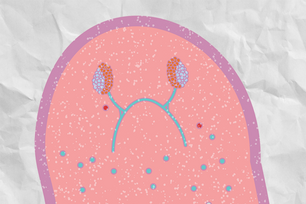Studies Examine Development in Drosophila
CAMBRIDGE, Mass. — Two studies by scientists in the lab of Whitehead Member Terry Orr-Weaver that shed light on developmental strategies of Drosophila were published in recent issues of the journals Developmental Cell and Current Biology.
Research appearing in Developmental Cell details the discovery of genes located in two genomic regions whose copy numbers are increased in response to differentiation of the ovarian follicle cells. This permits the production of massive amounts of protein during developmental periods so brief, gene transcription alone is not enough. The study addresses key fundamental issues in the regulation of gene expression during development, says Orr-Weaver, who also is a professor of biology at Massachusetts Institute of Technology.
“It’s a basic biological problem,” she says. “What do you need to regulate gene expression and are there developmental contexts in which adequate gene expression requires modification of the genome?”
Another study, published in Current Biology, highlights the complexity of the regulatory systems involved in organism reproduction through the study of a gene that is essential for meiosis in vertebrates, but not Drosophila.
Citation
Claycomb, J. M., Benasutti, M., Bosco, G., Fenger, D. D., & Orr-Weaver, T. L. (2004). Gene amplification as a developmental strategy: isolation of two developmental amplicons in Drosophila. Developmental cell, 6(1), 145-155.
Ivanovska, I., Lee, E., Kwan, K. M., Fenger, D. D., & Orr-Weaver, T. L. (2004). The Drosophila MOS ortholog is not essential for meiosis. Current Biology, 14(1), 75-80.
Contact
Communications and Public Affairs
Phone: 617-452-4630
Email: newsroom@wi.mit.edu


